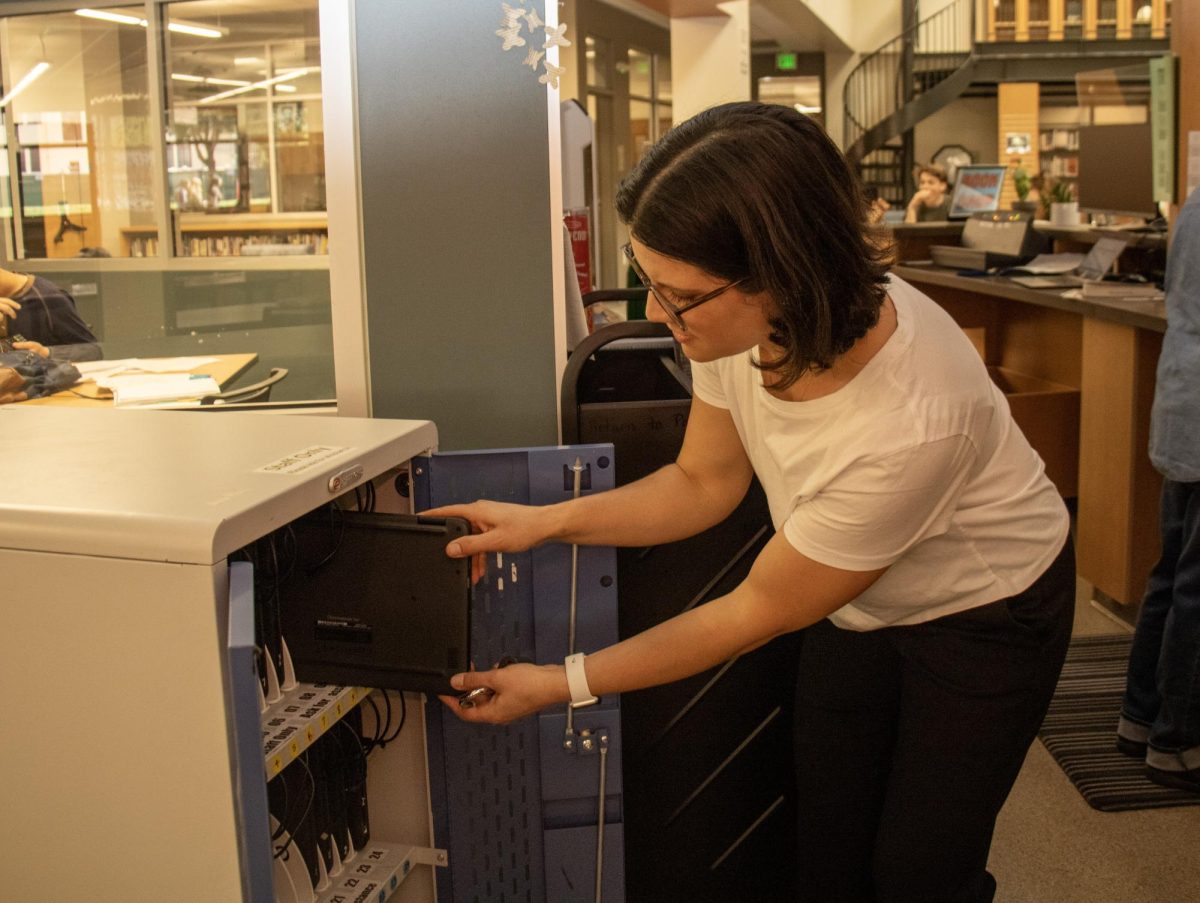The Palo Alto High School library has resumed lending out Chromebooks to students after temporarily shutting down the program in March, on the condition that students provide collateral such as phones or wallets to incentivize timely returns.
Starting April 15, when borrowing Chromebooks students must now give librarians an item of value that the library will hold onto until the Chromebook is returned. A Chromebook can only be borrowed for one school period at a time, but students can borrow one multiple times a day.
Though the standard procedure is to take the student’s phone, other items can be used as collateral according to librarian Sima Thomas. Thomas said the goal was to get students to bring borrowed items back.
“I took a lip gloss once,” Thomas said. “It’s just the point of [making] you want to bring back the device rather than ‘Oh well, I know I should bring it back but I really want to go dash off to do this other thing.”
Senior Shuya Lam said they traded in a knitting project for a Chromebook when they forgot to bring their computer to school.
“I needed my cell phone because I didn’t have my laptop,” Lam said. “We negotiated and I think it [taking the yarn project] was a good idea because I really wanted my yarn project back.”
Sophomore Alexander Deisseroth found the policy to be a bit irritating, but necessary.
“I generally agreed with it [the new policy] because we had a lot of problems with Chromebook stealing in the past,” Deisseroth said. “It was a little annoying to give up my phone since there were things I needed to do on it, but in order to prevent the stealing of the Chromebooks, I was willing to go along with it.”
According to Thomas, the new system expands on a procedure previously used for Chromebook chargers.
“We were trading Chromebook chargers for a device and that worked really well,” Thomas said. “The chargers always came back because people wanted their phones back.”
Thomas said that the new loaning system was created with school administrators to reduce the time staff spent dealing with overdue Chromebooks.
“Admin and the campus supervisors were spending an outsized amount of time tracking down students with 20, 30, 40-day overdue Chromebooks,” Thomas said. “It [was] just a waste of time.”
In addition to financial losses, the lack of Chromebooks also meant that on many occasions, the library did not have enough supply to lend out Chromebooks or chargers to all students who needed them according to assistant librarian Deborah Henry.
Despite the need for exchange of collateral, Deisseroth overall found the process of borrowing a Chromebook to be smooth.
“They [the librarians] did it quickly and efficiently, so I was able to make it out in a few minutes,” Deisseroth said.




